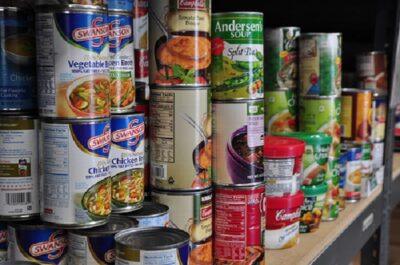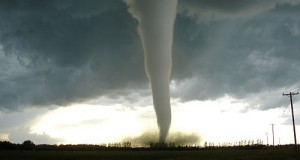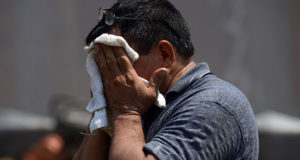Several million people America are preparing for the worst. Whether it’s for a terrorist attack, economic crash, natural disaster or something else, people stock up on supplies, food and weapons for the worst to come. Pray for the best, prepare for the worst, right?
Then there are others who aren’t preparing for anything and live on with their daily lives, expecting that nothing bad will happen.
But let’s say that the lights go out for any of the reasons that we listed, and people now find themselves in survival mode rather than living their everyday lives. Truth be told, both kinds of people, the preppers and the non-preppers, may actually find themselves in the same situation. But how can this be? The preppers and survivalists have been stocking up for years for this kind of disaster to happen, while others have not. Shouldn’t the preppers and survivalists be far better off than the non-preppers?
Yes, they should. And many of them will. But a large part of the survival attitude isn’t just about stocking up all the gasoline, food and water supplies, putting together your bug-out bag, and booking it to your hideout location or holding out in your house. An even bigger part of surviving is the mental aspect of surviving — the part where you tell yourself that you must survive.
The pack for anybody who wants to be fully prepared for an unexpected emergency
It’s sad, but many people might die when the lights go out and disaster strikes just because they don’t convince themselves that they will survive. And those who haven’t been prepping may survive the initial three days or month or whatever because they have the attitude that they will make it. A person could have a year’s worth supply of weapons, ammunition, gasoline, food, water, supplies and anything else they need. But maybe they’ve only been doing so because they wanted to be prepared, and they never expected the harsh reality to set in once the electricity goes off.
The point is that whether you are a prepper or a non-prepper, the will to survive is everything. There may be rioting on the streets, a natural disaster may have destroyed everything in your sight, the electricity may be out, or an economic crash may have rendered all money and cash useless. You must switch to survival mode and convince yourself to survive, because nothing is going to be the same, at least not for a while.
The good news is that if you can survive the initial three days of any disaster, your chances of survival increase dramatically. Some people get strength from their faith, their family, or both. Something as simple as looking forward to the next milk can help. Knowing that the first 72 hours are critical – and that it gets easier after that — should greatly boost your morale once you do survive the first three days (and you will survive those first three days). It should also greatly increase the morale of your friends and family, too.
Ultra Efficient Water Filter Fits In Your Pocket!
Something else that can help your survival mentality is to never overestimate your own abilities, since doing so could only get you and your loved ones killed.
Your survival mentality won’t just get you through the first three days; it will also get you through the first month, the first six months, the first year, and so on. Hopefully, though, any disaster that strikes will not last that long.
Undoubtedly, the best situation that you could find yourself in is to be both well-stocked and motivated to survive. Even if you’re not a prepper and don’t want to be one “officially,” it certainly doesn’t hurt to put a bug-out bag of basic survival gear and equipment together. If you’re well-stocked but not motivated, or motivated but not well-stocked, then the odds are stacked decisively against you. You must have the mentality that you will pull through no matter the odds. Ultimately, perseverance and the will to survive will always win out in the end.
What are your best survival tips? Share your thoughts in the section below:
 Off The Grid News Better Ideas For Off The Grid Living
Off The Grid News Better Ideas For Off The Grid Living





